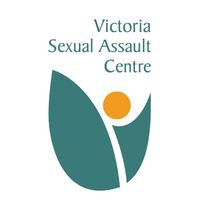
Victoria Sexual Assault Center

What Guides Our Work
Our work is built on over 30 years of dedication, hard work & the best of intentions from our wonderful staff & volunteers.
Our Mission
The Victoria Sexual Assault Centre is a feminist organization committed to ending sexualized violence through healing, education, & prevention. We are dedicated to supporting women & all trans survivors of sexual assault & CSA, through advocacy, counselling, & empowerment.
Our Values
• Communicating in a direct, caring, confidential, & honest manner, showing respect, gentleness, acceptance, & celebration of each other in all our diversity
• Each individual’s selfdefined inner knowledge, empowerment, &right to dignity
• A safe, accessible, & effective centre where individuals are supported towards healing from sexualized violence
• Social justice for all
• Enacting an anti-oppressive framework, that acknowledges societal & systemic barriers & our own positions of power & dominance
• Being transparent & accountable to the community regarding how & why our policies & practices are determined, enacted, & altered
Our Beliefs
• Sexualized violence is never justifiable.
• Sexualized violence is an act of power & control that is expressed in the sexual arena. It is not limited to sexual assault i.e. unwanted sexual contact, but includes a cultural foundation of strict gender roles and expectations where anyone who steps outside of these “gender boxes” is potentially subject to violence.
• Sexualized violence affects all women and trans individuals whether or not they have been victimized because of social expectations of gender. Fear of sexualized violence is a crucial factor in controlling the development and behavior of women, girls, & trans individuals.
• Men’s violence against women, children, & trans people happens because our society has created & tolerates power imbalances & socialization processes that devalue & victimize these groups of people. In addition to sexism, we acknowledge the effects of discrimination in our society based on (but not limited to) race, ethnicity, age, gender, religion, class, sexual orientation, &physical & mental abilities. People (particularly women & trans people) who experience multiple or intersecting inequities (e.g. racism, classism, homophobia…) are often targeted to a greater extent for sexualized violence. This is because society devalues & dehumanizes people who do not fit into dominant norms (white, man-identified, middle class, heterosexual, abled, etc.).
• Working toward the elimination of sexualized violence means recognizing &addressing the layered ways multiple forms of violence are being perpetuated in our society.
• Supporting survivors of sexualized violence to heal requires us to acknowledge that people have multiple identities & experiences of oppression that shape the way they experience & respond to sexualized violence as individuals & communities.
Rights and Responsibilities
• It is the initiator’s responsibility to ask for consent. Consent is a mutual, verbal, physical, & emotional agreement that happens enthusiastically, without manipulation, threats, or coercion.
• No one deserves to be sexually assaulted or abused, & those who are victimized are never responsible for violence perpetrated against them.
• People respond to & resist sexualized violence in diverse ways, & it is a person’s right to self-determine how to access safety when experiencing violence or oppression in their life.
• Individuals have the right to reproductive choice.
• Everyone has the right to a world free from sexualized violence, where sexuality is experienced as pleasurable, enjoyable, & positive by all parties involved – with all parties equally invested in the others’ pleasure, enjoyment, & experience.
Goals
1) To provide immediate information & support to all those impacted by sexualized violence.
2) To involve & support volunteers to contribute towards our goals of healing, prevention, & education.
3) To provide accessible, high quality, feminist counselling services to women and trans survivors of sexual assault & CSA.
4) To advocate for individual survivors within the justice, medical, & social service systems; to work cooperatively with these systems & with other community agencies to be responsive to the needs of the survivor.
5) To prevent sexualized violence by building awareness of its root causes & impact through education & social action in schools, institutions, & the community at large.
6) To continuously expand our knowledge of effective & innovative work in this field, to share this knowledge with others, & to apply it to our ongoing work.
7) To actively increase the accessibility of our services, particularly for those who are most affected by societal & systemic barriers
8) To critique our own positions of privilege & dominance, & work to equalize power within our relationships, our organization, & our communities
